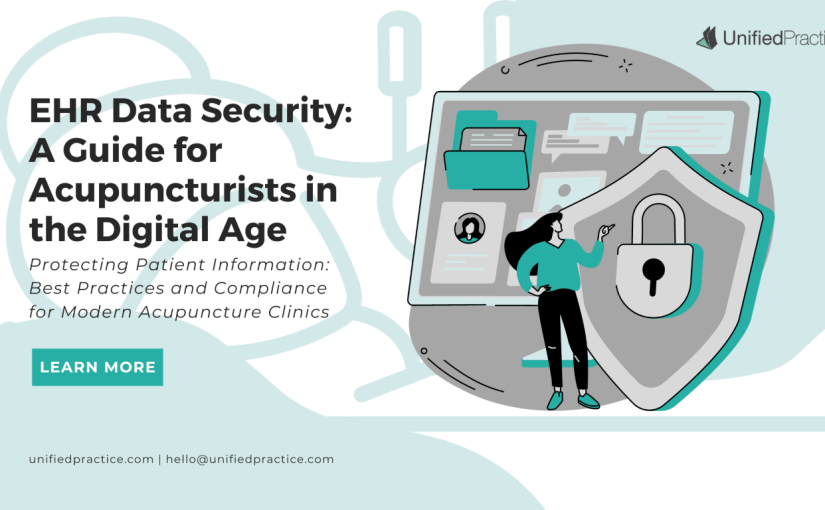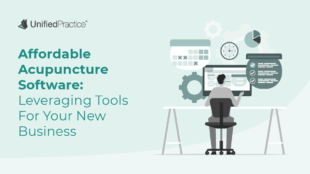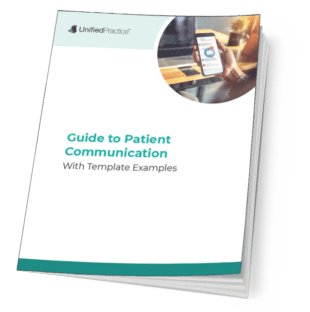In our digitally-driven age, electronic health records (EHR) have transformed the healthcare industry. For acupuncturists, EHR systems offer streamlined operations, efficient patient management, and better care standards. However, with the opportunities of digitization come the responsibilities of data security. For acupuncturists, it goes beyond mere compliance; it’s about maintaining the sacred trust of their patients.
What is Data Security?
Data security in healthcare refers to the measures, practices, and technologies employed to protect sensitive patient health information from unauthorized access, breaches, corruption, loss, or theft. Given the confidential and personal nature of health information, ensuring its security is not just a matter of privacy but also a crucial ethical and legal responsibility.
The Importance of Data Security in Healthcare
Data breaches can have devastating repercussions. Unauthorized exposure of medical records, treatment plans, and financial data can result in identity theft, financial fraud, and a violation of patient confidentiality.
Why is Data Security Crucial for Acupuncturists?
Despite its roots in ancient practices, modern acupuncture integrates with contemporary technologies, particularly when it comes to patient records and appointment bookings. Here are some key reasons why data security is crucial for acupuncturists:
- Patient Trust: Acupuncturists, like all healthcare providers, are entrusted with sensitive and private patient information. Ensuring this data is protected solidifies trust, which is a cornerstone of the practitioner-patient relationship.
- Regulatory Compliance: Depending on the region, acupuncturists may be legally bound to safeguard patient data. Non-compliance with data protection regulations can result in severe penalties and legal consequences. In the U.S., for instance, the Health Insurance Portability and Accountability Act (HIPAA) sets standards for patient data protection.
- Reputation Management: A single data breach can harm an acupuncturist’s reputation, potentially leading to loss of clients and diminished trust in the community. With the interconnectedness of today’s digital world, news of a breach can spread rapidly.
- Financial Implications: Breaches can result in significant financial burdens due to potential lawsuits, regulatory fines, and the costs of rectifying the breach.
- Medical Integrity: Secure records ensure that patient histories, treatment plans, and notes remain intact and unaltered. This is vital for consistent and effective care.
- Holistic Care Approach: Acupuncture often adopts a holistic approach to patient care, gathering comprehensive patient histories, including emotional and mental health information. This deep level of personal insight makes data protection even more essential.
- Integration with Other Systems: As acupuncture clinics modernize, they may integrate their systems with other medical facilities or providers for a more cohesive patient care approach. Ensuring data security within these integrations is vital to prevent vulnerabilities.
- Digital Transition: More acupuncturists are transitioning from paper records to electronic health record (EHR) systems. While this shift offers many conveniences, it presents new data security challenges that practitioners must address.
Key Data Security Considerations
- Access Control: Implementing protocols to ensure that only authorized personnel can access health data. This includes using strong, unique passwords, two-factor authentication, and defining user roles and permissions.
- Encryption: Data protection mechanisms are in place.
- Regular Backups: Creating regular, secure backups of data to restore information in case of technical glitches, corruption, or other unforeseen events.
- Audit Trails: Keeping logs of who accessed the data, when it was accessed, and any modifications made.
- Updated Software: Keeping EHR software updated prevents vulnerabilities.
- Employee Training: Educating staff on the importance of data security and training them on best practices.
Components of Healthcare Data:
Protected Health Information (PHI)
Any information that can identify an individual and is related to their health status, provision of healthcare, or payment for healthcare. Examples include medical histories, test results, insurance information, and other relevant data.
Electronic Health Records (EHR)
Digital versions of patients’ paper charts, provide real-time and patient-centered records, making the information available instantly and securely to authorized users.
HIPAA Compliance: Protecting Patient Information
The Health Insurance Portability and Accountability Act (HIPAA) sets stringent standards for patient data protection. HIPAA primarily focuses on ensuring the privacy and security of health information, as well as the continuity of health insurance coverage.
Take into account that for acupuncture software to be considered HIPAA compliant, it must adhere to several critical components:
- Security Rule: The software needs to:
- Have management processes and training in place.
- Control physical access, like where the software is used.
- Have tech controls, like password protection, to keep patient data safe when being viewed or sent.
- Data Encryption: Patient information should be secured using encryption techniques. Appropriate measures for data security should be implemented.
- Data Backup and Recovery: The software should regularly save patient data and be able to get it back if it’s lost or damaged.
- Access Logs: The software should keep track of who views or changes patient data and when.
- Business Associate Agreements (BAAs): If the software company handles patient data, they’re seen as a “business partner” under HIPAA. Acupuncturists should have an agreement with them about keeping data safe.
- Patient Access: Patients can see, change, and know who’s seen their health data. The software should help with this in line with HIPAA rules.
At Unified Practice we understand the importance of data security, especially given the sensitive nature of healthcare data. When exploring us or any other EHR options, as an acupuncturist, it’s crucial to:
- Review the Privacy Policy and Terms of Service: These resources will give clear insights into how data is safeguarded and managed.
- Ask about Compliance: Make sure essential data protection benchmarks, such as HIPAA, are met.
- Look into Certifications: Determine if any credentials or commendations from established entities in the healthcare and IT fields are held.
Takeaway
When choosing an EHR system, ensuring data security should be prioritized. Not only is it vital for the protection of patient details, but also the trust and reputation of your practice. Take the right step today by emphasizing security in your choice. Contact us now!




